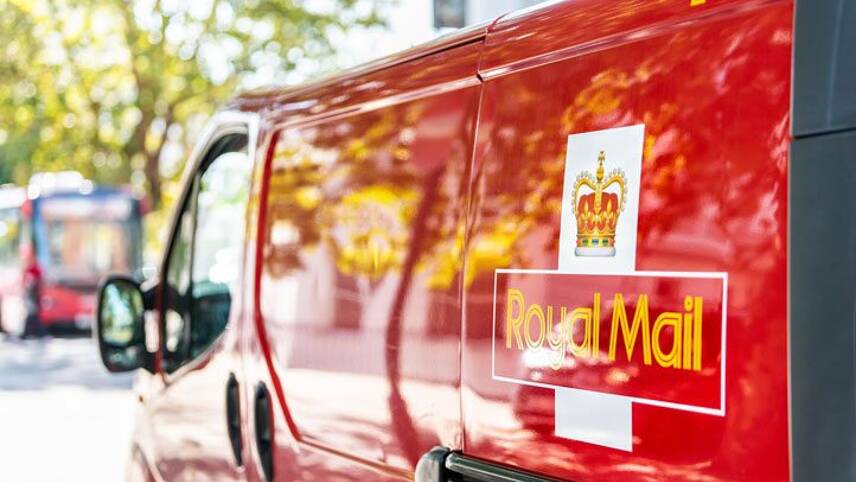Register for free and continue reading
Join our growing army of changemakers and get unlimited access to our premium content

Earlier this year
Royal Mail will convert its company cars to EVs by 2030 as part of a wider ambition to become a net-zero carbon emission business with a 100% alternative fuel fleet.
By 2025, only EVs will be available to order for company cars and by 2022, colleagues needing access to cars will be eligible for a “zero tailpipe emissions company car scheme”. Postmen and women will be able to access EVs through the scheme and a salary sacrifice initiative called MyDrive.
As part of the commitment, Royal Mail will only pay business mileage reimbursement at an appropriate EV rate on all diesel, petrol and hybrid vehicles – either privately owned or company cars – by 2025.
Royal Mail’s director of corporate affairs Jenny Hall said: “We’ve already revealed our ambition to turn our fleet to alternative fuel vehicles in order to do the right thing by the communities we serve. It makes sense for us to focus on company cars too, and we hope that this new scheme will benefit our colleagues while reducing overall Company emissions further.”
Earlier this year, Royal Mail announced plans to add an additional 3,000 low-emission delivery vans to its fleet. Royal Mail currently operates some 300 EVs, so the vision marks a ten-fold increase in the size of its electric fleet. The new vehicles – the first of which will enter operation this summer – will be added to existing delivery routes and depots will receive models with load capacities ranging from 3.7m3 to 6.3m3 depending on their needs.
All Royal Mail delivery offices will need to have EV charging points fitted as part of the plan. The firm has not confirmed where the first vehicles and chargers will be based but said in a statement that it is focusing on urban areas with ultra-low emission zones and green city plans. Cities with these requirements include London, Oxford, Glasgow and Bristol, where Royal Mail already hosts 23 pure EVs.
Royal Mail is also exploring alternative fuels as well as EVs. In May 2021, it added 29 40-tonne biogas-powered trucks to its fleet. The firm is aiming to convert entirely to EVs and alternative fuels, phasing out petrol and diesel entirely, but has not set a target date.
Royal Mail is also a member of The Climate Group’s EV100 initiative, which aims to make electric vehicles (EVs) “the new normal” by 2030. The initiative’s latest annual progress report, published at the start of the year, revealed that it now has 101 business members. Collectively, these businesses have rolled out more than 169,000 EVs to date, with 89,000 having been rolled out in 2020 alone.
Octopus Energy Services
In related news, the services arm of Octopus Energy will switch a fleet of diesel vans over to EVs through a new agreement with Peugeot.
Octopus Energy Services will incorporate 23 Peugeot e-Expert models with a 75kWh battery into its fleet. The vehicles have a range of more than 200 miles on a single charge. Octopus Energy Services previously worked with a fleet of 60 Peugeot Expert diesel vans, which will be switched to EVs in the coming months.
Octopus Energy Services’ chief executive John Szymik said: “As a green energy provider, we are focused on driving the renewable energy revolution globally. We don’t just mean in the energy industry either, with transport being the UK’s largest carbon-emitting sector it’s high time we put the brakes on unnecessary petrol cars on the road.
“Our 23 new Peugeot e-Expert vans ensure we are firmly in the driving seat as we begin decarbonising our whole engineering fleet. With our new vehicles, we’ll be able to install even more electric vehicle chargers across the country and help improve air quality in our cities.”
Read edie’s new COP26 Primer Report on Clean Energy
edie’s COP26 Primer Reports are about seizing the green opportunity of the crucial conference in Glasgow this November. Produced in the run-up to the official talks, this mini-series of reports are based on the five key themes of COP26: Clean Energy, Clean Transport, Climate Resilience, Nature-Based Solutions, and Climate Finance.
The Clean Energy report – the first in this series – is now available to download for free here. Hosted in association with British Gas, it contains an up-to-date snapshot of clean energy policies, progress and challenges globally, as well as outlining the desired outcome in this field at the talks themselves. Also detailed are the ways in which the private and public sectors can contribute to the energy transition at this pivotal moment in time.
Click here to download a copy of the Primer Report.
Matt Mace


Please login or Register to leave a comment.